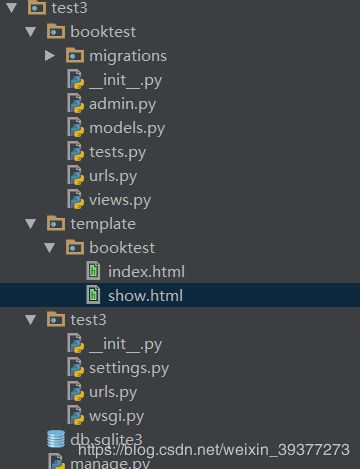- 【零基础学AI】第29讲:BERT模型实战 - 情感分析
1989
0基础学AIbert人工智能深度学习神经网络cnnpython自然语言处理
本节课你将学到BERT模型的核心原理与优势HuggingFaceTransformers库的BERT接口使用情感分析任务的完整实现流程模型微调(Fine-tuning)技巧开始之前环境要求Python3.8+需要安装的包:pipinstalltorchtransformersdatasetspandastqdmGPU推荐(可加速训练)前置知识第28讲Transformer基础基本PyTorch使用
- 【零基础学AI】第27讲:注意力机制(Attention) - 机器翻译实战
1989
0基础学AI人工智能机器翻译自然语言处理pythontensorflow机器学习神经网络
本节课你将学到理解注意力机制的核心思想掌握注意力计算的数学原理实现基于注意力机制的Seq2Seq模型构建英语到法语的神经翻译系统开始之前环境要求Python3.8+需要安装的包:tensorflow==2.8.0numpy==1.21.0matplotlib==3.4.0pandas==1.3.0前置知识RNN/LSTM原理(第26讲)序列数据处理(第26讲)自然语言处理基础(第14讲)核心概念为
- Python: 如何用Python的迭代器或生成器实现斐波那契数列
KevinShi_BJ
python
斐波那契数列(Fibonaccisequence)是指这样一个数列:1,1,2,3,5,8,13,21,34,55,89...这个数列从第3项开始,每一项都等于前两项之和。斐波那契数列的定义者,是意大利数学家莱昂纳多·斐波那契(LeonardoFibonacci)。以兔子繁殖为例子而引入,故又称为”兔子数列“。斐波那契数列又称黄金分割数列,n越大,相邻两值的比越接近黄金分割0.618,非常有趣。百
- Python实现布林带策略完整代码
程序化交易助手
量化软件Python程序化交易Python量化炒股PTradeQMT量化交易量化软件deepseek
Python实现布林带策略完整代码布林带是个啥玩意儿?我见过太多新手一上来就问"布林带能不能赚钱",这问题就跟问"菜刀能不能切菜"一样。布林带就是个工具,关键看你怎么用。简单来说,它就是在均线上下画两条通道线,股价大部分时间都在这个通道里晃悠。记得去年有个客户,拿着布林带当圣杯,结果亏得妈都不认识。后来我给他看了我的Python策略代码,这哥们才明白原来工具要配合仓位管理和止损。现在他账户已经翻倍
- 从亏损到盈利:用Python实现WVAD策略,量价结合更靠谱
程序化交易助手
量化软件Python程序化交易Python量化炒股PTradeQMT量化交易量化软件deepseek
从亏损到盈利:用Python实现WVAD策略,量价结合更靠谱那个让我夜不能寐的亏损账户去年有个客户老张来找我,50万本金半年亏了15万。他红着眼睛问我:"为什么我跟着大V买卖还是亏?"我看了他的交易记录就明白了——全是凭感觉操作,涨了追,跌了割,完全被市场情绪牵着鼻子走。这让我想起自己刚入行时,盯着分时图眼睛发酸的日子。直到有天看到营业部老总桌上那本《量化交易入门》,才恍然大悟:原来职业玩家都在用
- python分支语句_python入门基础教程10 python的分支语句
weixin_39604280
python分支语句
if分支语句分支语句的作用是在某些条件控制下有选择的执行实现一定功能语句块。if分支语句则是当if后的条件满足时,if下的语句块被执行,语法格式如下所示:if:statements让我们看看代码吧。>>>sex='male'>>>ifsex=='male':print'Man!'#此处有两次回车键Man!>>>ifsex=='female':print'Woman'#此处有两次回车键>>>if_e
- Python 分支语句,分支语句嵌套,三目运算
龙技术
Python语法python
1、分支语句单一条件判断if条件:条件成立时执行的代码#格式:'''if条件:条件成立时执行的代码'''age=int(input('请输入你的年龄:'))#上网ifage>=18:print('小帅哥快来玩啊')print('回家睡觉')对立条件判断if条件:条件成立时执行的代码else:条件不成立时执行的代码#if...else...'''if条件:条件成立时执行的代码else:条件不成立时执
- 十五天Python系统学习教程第十五天
Day15详细学习计划:Python综合项目实战与学习路径规划学习目标✅综合运用前14天知识完成完整项目开发✅掌握生产级项目架构设计与优化技巧✅制定后续学习计划与技能提升方案✅理解Python工程化开发最佳实践一、实战项目:企业级任务管理系统1.1项目需求核心功能:用户认证(JWT令牌)任务CRUD与状态流转(待办/进行中/已完成)任务分类与优先级管理数据统计可视化(任务完成率/耗时分析)邮件通知
- Python分支语句注意事项
乔代码嘚
python开发语言github
一、单分支语句:if语句1.语法:if:语句块2.注意事项:1)if语句首先判断的结果值,如果结果为True,则执行语句块里的语句序列。如果结果为False,语句块里的语句会被跳过;2)语句块是if条件满足后执行的一个或多个语句序列;3)语句块中语句通过与if所在行形成缩进表达包含关系。4)if判断语句还可以简写:iftag:print("True")当x为0、0.0、0j、None或者空的字符串
- python函数
四、函数定义P.1函数定义把一段实现某个功能的完整代码,用一个函数封装,后期可以通过调用函数名,实现依次编写,多次调用的目的函数,可以等价于我们初高中学过的f(x),f是运算法则,也就是代码函数中对应的代码执行块,每有一个x对应经过f运算之后得到一个值,如f(x)对应的是让x乘3加2,每有一个x进入f中便会得到一个值。高中对应的函数三要素是,定义域、运算法则、值域,而编程中的函数也有三要素,分别为
- Python程序员如何制定学习计划?提高编写代码的能力
在工作和生活压力之下,如何提升自己的技能和能力?这是许多人都面临的问题。如果你也有这样的问题,那么首先要明确的是,要想提升自己的能力,必须要有一个清晰的计划和方向。这个计划可以是长期的,也可以是短期的,但必须要有一个大的方向性。接下来,我们来看看如何制定一个有效的计划。如果你不知道如何制定计划,其实很简单。你可以闭上眼睛,想一想自己哪些方面比较薄弱,比如多线程锁、Spring的一些核心技术源码、分
- Python: 包
一、Python包基础概念1.1什么是Python包Python包(Package)是一种组织Python模块的方式,它使用目录结构来组织相关的模块。一个包本质上是一个包含__init__.py文件的目录,该文件可以是空的,也可以包含包的初始化代码。my_package/├──__init__.py├──module1.py└──module2.py1.2包与模块的区别模块(Module):单个.
- PyTorch 详细安装教程及核心API使用指南
慕婉0307
pytorchpytorch人工智能python
一、PyTorch简介PyTorch是由FacebookAIResearch(FAIR)于2016年开发的开源深度学习框架,现已成为学术界和工业界最受欢迎的深度学习工具之一。其核心优势在于采用了动态计算图(DynamicComputationGraph,又称"define-by-run"机制),这使得开发者能够像编写普通Python代码一样构建神经网络,并在运行时动态调整计算图结构,大大提高了研究
- python爬虫正则表达式使用说明
yuwinter
Pythonpython爬虫正则表达式
Python爬虫和正则表达式是自动化网络数据提取中常用的两种技术。本文将详细介绍如何使用Python编写爬虫,结合正则表达式提取网页中的数据。一、基础知识点1.安装必要库爬虫通常需要使用库来处理HTTP请求和解析网页,常用库有:requests:用于发送HTTP请求,获取网页内容。re:Python自带的正则表达式库,用于模式匹配和提取数据。BeautifulSoup(可选):如果你需要更高级的网
- python:正则表达式符号
初于青丝mc终于白发
python相关正则表达式pythonpycharm
本次给大家带来的是python中的正则表达式符号的复习呀,还记得清楚嘛^^?匹配零次或一次前面的分组*匹配零次或多次前面的分组+匹配一次或多次前面的分组{n}匹配n次前面的分组{n,}匹配n次或更多次前面的分组{,m}匹配零次或m次前面的分组{n,m}匹配至少n次,至多m次前面的分组{n,m}?、*?、+?对前面的分组进行非贪心匹配^spam意味着字符串必须以spam开始spam$意味着字符串必须
- Python: 正则表达式
慕婉0307
python基础知识点正则表达式
正则表达式是处理文本数据的强大工具,Python通过re模块提供了完整的正则表达式功能。本文将详细介绍Python正则表达式的使用方法,包括基础语法、高级技巧和re模块API的详细解析。一、正则表达式基础1.1什么是正则表达式正则表达式(RegularExpression)是一种用于匹配字符串中字符组合的模式,可以用于搜索、替换和验证文本数据。1.2Python中的re模块Python通过内置的r
- PythonOCC-core项目中的Wayland显示支持探索
颜如良
PythonOCC-core项目中的Wayland显示支持探索pythonocc-coretpaviot/pythonocc-core:是一个基于Python的OpenCASCADE(OCCT)几何内核库,提供了三维几何形状的创建、分析和渲染等功能。适合对3D建模、CAD、CAE以及Python有兴趣的开发者。项目地址:https://gitcode.com/gh_mirrors/py/pytho
- 【Python 算法零基础 4.排序 ⑦ 桶排序】
L_cl
Python常见算法排序算法数据结构算法
草木不争高,争的是生生不息——25.5.26选择排序回顾①遍历数组:从索引0到n-1(n为数组长度)。②每轮确定最小值:假设当前索引i为最小值索引min_index。从i+1到n-1遍历,若找到更小元素,则更新min_index。③交换元素:若min_index≠i,则交换arr[i]与arr[min_index]。'''①遍历数组:从索引 0 到 n-1(n 为数组长度)。②每轮确定最小值:假设
- 【Python 算法零基础 4.排序 ⑥ 快速排序】
L_cl
Python常见算法排序算法算法
既有锦绣前程可奔赴,亦有往日岁月可回首——25.5.25选择排序回顾①遍历数组:从索引0到n-1(n为数组长度)。②每轮确定最小值:假设当前索引i为最小值索引min_index。从i+1到n-1遍历,若找到更小元素,则更新min_index。③交换元素:若min_index≠i,则交换arr[i]与arr[min_index]。'''①遍历数组:从索引 0 到 n-1(n 为数组长度)。②每轮确定
- Python练习--Day1
IT小白成长记
python
1、输入三个整数:判断这三个整数能否组成一个三角形?构成三角形的条件:任意两个数之和大于第三个数首先输入三个数:使用Python内置函数input()从标准输入读入一行文本,默认的标准输入为键盘输入input所读入内容的数据类型为字符串类型,需要使用int、float等转换成我们需要的数据类型使用分支结构判断a=int(input("请输入第一个整数:"))b=int(input("请输入第二个整
- 基于python+flask框架的某图书馆书籍推荐系统的设计与实现(开题+程序+论文) 计算机毕设
zhihao502
pythonflask课程设计
本系统(程序+源码+数据库+调试部署+开发环境)带论文文档1万字以上,文末可获取,系统界面在最后面。系统程序文件列表开题报告内容研究背景在数字化时代,图书馆作为知识传播与积累的重要场所,面临着如何更有效地服务于广大读者的挑战。随着信息量的爆炸式增长,读者在浩瀚的书海中寻找符合个人兴趣和需求的书籍变得日益困难。传统的图书检索方式已难以满足读者快速、精准获取推荐书籍的需求。因此,开发一套智能化的图书馆
- 【Python】深入解析 Hydra 库
宅男很神经
python开发语言
第一章:混沌的终结:在配置泥潭中挣扎与Hydra的曙光在任何一个软件项目的生命周期中,无论是小型的个人脚本,还是大型的企业级分布式系统,我们都无法回避一个核心问题:如何管理配置。配置,是连接我们静态的代码逻辑与动态的运行环境之间的桥梁。它决定了我们的程序连接哪个数据库、使用哪个API密钥、以多大的批次处理数据、模型的学习率应该是多少、日志应该输出到哪里、以何种级别输出…可以说,配置定义了程序的行为
- “解锁自动化新可能:使用Robocorp构建Python机器人“
sjufgwgfhoia
自动化python服务器
在这个快速变化的技术时代,自动化已经成为提高生产力和效率的关键驱动力。Robocorp提供了一种强大且灵活的平台,帮助开发者构建和运行Python机器人,以满足各类业务需求。引言在本文中,我们将深入探讨如何使用Robocorp构建和操作可以运行在任何地方且具备任意规模的Python工作器。本文旨在帮助你快速上手Robocorp平台的安装和设置,并分享如何在实践中应用它。主要内容1.Robocorp
- Conda 虚拟环境与 venv、virtualenv、pipenv 的对比
drebander
condavirtualenvpython
1.引言在Python开发中,虚拟环境是解决不同项目依赖冲突的关键工具。Python提供了多种虚拟环境管理工具,包括Conda、venv、virtualenv和pipenv。每种工具都有其独特的特点和适用场景。本篇博客将简要对比这些工具,帮助你选择最适合的虚拟环境管理工具。2.Conda虚拟环境2.1Conda概述Conda是Anaconda提供的跨平台、跨语言的包和环境管理工具。除了管理Pyth
- 量化开发(系列第3篇): C++在高性能量化交易中的核心应用与技术栈深度解析
Natsume1710
c++开发语言性能优化python
本文为《量化开发》系列第3篇参考GitHub项目:Awesome-QuantDev-Learn前言在量化交易领域,Python以其开发效率高、生态系统丰富等优势,成为策略研究、数据分析及中低频交易的首选语言。在本系列前两篇文章中,我们详细探讨了Python在量化入门与策略回测中的实践。然而,当进入对延迟要求极为严苛的高频交易(High-FrequencyTrading,HFT)领域时,Python
- 使用Robocorp和LangChain构建可扩展的Python自动化工作流
qq_37836323
langchainpython自动化
使用Robocorp和LangChain构建可扩展的Python自动化工作流引言在当今快速发展的技术世界中,自动化已成为提高效率和生产力的关键。Robocorp是一个强大的平台,它允许开发者构建和运行可在任何地方、任何规模无缝运行的Python工作流。本文将探讨如何结合Robocorp和LangChain来创建灵活、可扩展的自动化解决方案。Robocorp简介Robocorp是一个现代化的自动化平
- Robocorp自动化框架使用教程
Robocorp自动化框架使用教程robocorpCreatePythonAIActionsandAutomations,anddeploy&operatethemanywhere项目地址:https://gitcode.com/gh_mirrors/ro/robocorp1.项目介绍Robocorp是一个开源自动化框架,旨在帮助开发者创建PythonAIActions和自动化任务,这些任务可以部
- Python量化策略与回测框架实战:从“纸上谈兵”到“真金白银”的第一步(系列第2篇)
Natsume1710
python开发语言github
作者:GitHub项目地址Awesome-QuantDev-Learn本文为量化开发学习路线系列第2篇,欢迎收藏与关注。引言:为什么选择Python作为量化入门的起点?在上一篇文章中,我们详细讲解了量化开发的基本框架与开发者思维的转变路径。那么,具体要如何开始第一步实践呢?答案是:从Python入门。Python以其快速原型开发能力、丰富的数据分析工具包,以及良好的社区生态,已经成为全球范围内量化
- 【Python】Python 3.10 新特性
月落一寸光
Python新特性python开发语言
文章目录前言:一、新特性1.1PEP617;带括号的上下文管理器1.2更清楚的错误消息1.3PEP634:结构化模式匹配(match)1.4PEP604:有关类型提示的新增特性1.5PEP613:类型别名二、改进的模块2.1`asyncio`2.2`argparse`2.3`base64`2.4`collections.abc`2.5`dataclasses``__slots__`2.6`trac
- 程序代码篇---Python指明函数参数类型
文章目录前言简介一、函数参数的类型指定1.基本类型提示2.默认参数3.可变参数4.联合类型(Union)5.可选类型(Optional)6.复杂类型二、返回值的类型指定1.基本返回类型2.无返回值(None)3.返回多个值(Tuple)4.生成器(Generator)三、高级类型提示用法1.类型别名(TypeAliases)2.泛型(Generics)3.可调用对象(Callable)4.NewT
- ztree异步加载
3213213333332132
JavaScriptAjaxjsonWebztree
相信新手用ztree的时候,对异步加载会有些困惑,我开始的时候也是看了API花了些时间才搞定了异步加载,在这里分享给大家。
我后台代码生成的是json格式的数据,数据大家按各自的需求生成,这里只给出前端的代码。
设置setting,这里只关注async属性的配置
var setting = {
//异步加载配置
- thirft rpc 具体调用流程
BlueSkator
中间件rpcthrift
Thrift调用过程中,Thrift客户端和服务器之间主要用到传输层类、协议层类和处理类三个主要的核心类,这三个类的相互协作共同完成rpc的整个调用过程。在调用过程中将按照以下顺序进行协同工作:
(1) 将客户端程序调用的函数名和参数传递给协议层(TProtocol),协议
- 异或运算推导, 交换数据
dcj3sjt126com
PHP异或^
/*
* 5 0101
* 9 1010
*
* 5 ^ 5
* 0101
* 0101
* -----
* 0000
* 得出第一个规律: 相同的数进行异或, 结果是0
*
* 9 ^ 5 ^ 6
* 1010
* 0101
* ----
* 1111
*
* 1111
* 0110
* ----
* 1001
- 事件源对象
周华华
JavaScript
<!DOCTYPE html PUBLIC "-//W3C//DTD XHTML 1.0 Transitional//EN" "http://www.w3.org/TR/xhtml1/DTD/xhtml1-transitional.dtd">
<html xmlns="http://www.w3.org/1999/xhtml&q
- MySql配置及相关命令
g21121
mysql
MySQL安装完毕后我们需要对它进行一些设置及性能优化,主要包括字符集设置,启动设置,连接优化,表优化,分区优化等等。
一 修改MySQL密码及用户
- [简单]poi删除excel 2007超链接
53873039oycg
Excel
采用解析sheet.xml方式删除超链接,缺点是要打开文件2次,代码如下:
public void removeExcel2007AllHyperLink(String filePath) throws Exception {
OPCPackage ocPkg = OPCPac
- Struts2添加 open flash chart
云端月影
准备以下开源项目:
1. Struts 2.1.6
2. Open Flash Chart 2 Version 2 Lug Wyrm Charmer (28th, July 2009)
3. jofc2,这东西不知道是没做好还是什么意思,好像和ofc2不怎么匹配,最好下源码,有什么问题直接改。
4. log4j
用eclipse新建动态网站,取名OFC2Demo,将Struts2 l
- spring包详解
aijuans
spring
下载的spring包中文件及各种包众多,在项目中往往只有部分是我们必须的,如果不清楚什么时候需要什么包的话,看看下面就知道了。 aspectj目录下是在Spring框架下使用aspectj的源代码和测试程序文件。Aspectj是java最早的提供AOP的应用框架。 dist 目录下是Spring 的发布包,关于发布包下面会详细进行说明。 docs&nb
- 网站推广之seo概念
antonyup_2006
算法Web应用服务器搜索引擎Google
持续开发一年多的b2c网站终于在08年10月23日上线了。作为开发人员的我在修改bug的同时,准备了解下网站的推广分析策略。
所谓网站推广,目的在于让尽可能多的潜在用户了解并访问网站,通过网站获得有关产品和服务等信息,为最终形成购买决策提供支持。
网站推广策略有很多,seo,email,adv
- 单例模式,sql注入,序列
百合不是茶
单例模式序列sql注入预编译
序列在前面写过有关的博客,也有过总结,但是今天在做一个JDBC操作数据库的相关内容时 需要使用序列创建一个自增长的字段 居然不会了,所以将序列写在本篇的前面
1,序列是一个保存数据连续的增长的一种方式;
序列的创建;
CREATE SEQUENCE seq_pro
2 INCREMENT BY 1 -- 每次加几个
3
- Mockito单元测试实例
bijian1013
单元测试mockito
Mockito单元测试实例:
public class SettingServiceTest {
private List<PersonDTO> personList = new ArrayList<PersonDTO>();
@InjectMocks
private SettingPojoService settin
- 精通Oracle10编程SQL(9)使用游标
bijian1013
oracle数据库plsql
/*
*使用游标
*/
--显示游标
--在显式游标中使用FETCH...INTO语句
DECLARE
CURSOR emp_cursor is
select ename,sal from emp where deptno=1;
v_ename emp.ename%TYPE;
v_sal emp.sal%TYPE;
begin
ope
- 【Java语言】动态代理
bit1129
java语言
JDK接口动态代理
JDK自带的动态代理通过动态的根据接口生成字节码(实现接口的一个具体类)的方式,为接口的实现类提供代理。被代理的对象和代理对象通过InvocationHandler建立关联
package com.tom;
import com.tom.model.User;
import com.tom.service.IUserService;
- Java通信之URL通信基础
白糖_
javajdkwebservice网络协议ITeye
java对网络通信以及提供了比较全面的jdk支持,java.net包能让程序员直接在程序中实现网络通信。
在技术日新月异的现在,我们能通过很多方式实现数据通信,比如webservice、url通信、socket通信等等,今天简单介绍下URL通信。
学习准备:建议首先学习java的IO基础知识
URL是统一资源定位器的简写,URL可以访问Internet和www,可以通过url
- 博弈Java讲义 - Java线程同步 (1)
boyitech
java多线程同步锁
在并发编程中经常会碰到多个执行线程共享资源的问题。例如多个线程同时读写文件,共用数据库连接,全局的计数器等。如果不处理好多线程之间的同步问题很容易引起状态不一致或者其他的错误。
同步不仅可以阻止一个线程看到对象处于不一致的状态,它还可以保证进入同步方法或者块的每个线程,都看到由同一锁保护的之前所有的修改结果。处理同步的关键就是要正确的识别临界条件(cri
- java-给定字符串,删除开始和结尾处的空格,并将中间的多个连续的空格合并成一个。
bylijinnan
java
public class DeleteExtraSpace {
/**
* 题目:给定字符串,删除开始和结尾处的空格,并将中间的多个连续的空格合并成一个。
* 方法1.用已有的String类的trim和replaceAll方法
* 方法2.全部用正则表达式,这个我不熟
* 方法3.“重新发明轮子”,从头遍历一次
*/
public static v
- An error has occurred.See the log file错误解决!
Kai_Ge
MyEclipse
今天早上打开MyEclipse时,自动关闭!弹出An error has occurred.See the log file错误提示!
很郁闷昨天启动和关闭还好着!!!打开几次依然报此错误,确定不是眼花了!
打开日志文件!找到当日错误文件内容:
--------------------------------------------------------------------------
- [矿业与工业]修建一个空间矿床开采站要多少钱?
comsci
地球上的钛金属矿藏已经接近枯竭...........
我们在冥王星的一颗卫星上面发现一些具有开采价值的矿床.....
那么,现在要编制一个预算,提交给财政部门..
- 解析Google Map Routes
dai_lm
google api
为了获得从A点到B点的路劲,经常会使用Google提供的API,例如
[url]
http://maps.googleapis.com/maps/api/directions/json?origin=40.7144,-74.0060&destination=47.6063,-122.3204&sensor=false
[/url]
从返回的结果上,大致可以了解应该怎么走,但
- SQL还有多少“理所应当”?
datamachine
sql
转贴存档,原帖地址:http://blog.chinaunix.net/uid-29242841-id-3968998.html、http://blog.chinaunix.net/uid-29242841-id-3971046.html!
------------------------------------华丽的分割线--------------------------------
- Yii使用Ajax验证时,如何设置某些字段不需要验证
dcj3sjt126com
Ajaxyii
经常像你注册页面,你可能非常希望只需要Ajax去验证用户名和Email,而不需要使用Ajax再去验证密码,默认如果你使用Yii 内置的ajax验证Form,例如:
$form=$this->beginWidget('CActiveForm', array( 'id'=>'usuario-form',&
- 使用git同步网站代码
dcj3sjt126com
crontabgit
转自:http://ued.ctrip.com/blog/?p=3646?tn=gongxinjun.com
管理一网站,最开始使用的虚拟空间,采用提供商支持的ftp上传网站文件,后换用vps,vps可以自己搭建ftp的,但是懒得搞,直接使用scp传输文件到服务器,现在需要更新文件到服务器,使用scp真的很烦。发现本人就职的公司,采用的git+rsync的方式来管理、同步代码,遂
- sql基本操作
蕃薯耀
sqlsql基本操作sql常用操作
sql基本操作
>>>>>>>>>>>>>>>>>>>>>>>>>>>>>>>>>>>>
蕃薯耀 2015年6月1日 17:30:33 星期一
&
- Spring4+Hibernate4+Atomikos3.3多数据源事务管理
hanqunfeng
Hibernate4
Spring3+后不再对JTOM提供支持,所以可以改用Atomikos管理多数据源事务。Spring2.5+Hibernate3+JTOM参考:http://hanqunfeng.iteye.com/blog/1554251Atomikos官网网站:http://www.atomikos.com/ 一.pom.xml
<dependency>
<
- jquery中两个值得注意的方法one()和trigger()方法
jackyrong
trigger
在jquery中,有两个值得注意但容易忽视的方法,分别是one()方法和trigger()方法,这是从国内作者<<jquery权威指南》一书中看到不错的介绍
1) one方法
one方法的功能是让所选定的元素绑定一个仅触发一次的处理函数,格式为
one(type,${data},fn)
&nb
- 拿工资不仅仅是让你写代码的
lampcy
工作面试咨询
这是我对团队每个新进员工说的第一件事情。这句话的意思是,我并不关心你是如何快速完成任务的,哪怕代码很差,只要它像救生艇通气门一样管用就行。这句话也是我最喜欢的座右铭之一。
这个说法其实很合理:我们的工作是思考客户提出的问题,然后制定解决方案。思考第一,代码第二,公司请我们的最终目的不是写代码,而是想出解决方案。
话粗理不粗。
付你薪水不是让你来思考的,也不是让你来写代码的,你的目的是交付产品
- 架构师之对象操作----------对象的效率复制和判断是否全为空
nannan408
架构师
1.前言。
如题。
2.代码。
(1)对象的复制,比spring的beanCopier在大并发下效率要高,利用net.sf.cglib.beans.BeanCopier
Src src=new Src();
BeanCopier beanCopier = BeanCopier.create(Src.class, Des.class, false);
- ajax 被缓存的解决方案
Rainbow702
JavaScriptjqueryAjaxcache缓存
使用jquery的ajax来发送请求进行局部刷新画面,各位可能都做过。
今天碰到一个奇怪的现象,就是,同一个ajax请求,在chrome中,不论发送多少次,都可以发送至服务器端,而不会被缓存。但是,换成在IE下的时候,发现,同一个ajax请求,会发生被缓存的情况,只有第一次才会被发送至服务器端,之后的不会再被发送。郁闷。
解决方法如下:
① 直接使用 JQuery提供的 “cache”参数,
- 修改date.toLocaleString()的警告
tntxia
String
我们在写程序的时候,经常要查看时间,所以我们经常会用到date.toLocaleString(),但是date.toLocaleString()是一个过时 的API,代替的方法如下:
package com.tntxia.htmlmaker.util;
import java.text.SimpleDateFormat;
import java.util.
- 项目完成后的小总结
xiaomiya
js总结项目
项目完成了,突然想做个总结但是有点无从下手了。
做之前对于客户端给的接口很模式。然而定义好了格式要求就如此的愉快了。
先说说项目主要实现的功能吧
1,按键精灵
2,获取行情数据
3,各种input输入条件判断
4,发送数据(有json格式和string格式)
5,获取预警条件列表和预警结果列表,
6,排序,
7,预警结果分页获取
8,导出文件(excel,text等)
9,修
